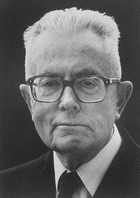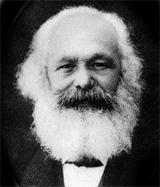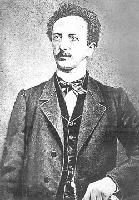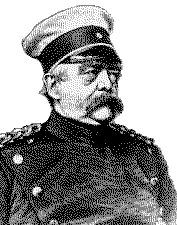Index:
Presentation.
Dear friends,
Our chairman, Mr. Agustí Chalaux, has recently published a new
document where he repeats once again, with his well-known provocative style,
what he is always telling us: that if today there is material poverty (at
a time when there is an actual build-up of material goods thanks to modern
technology), we are all to blame, and mainly the governments which are
unable to introduce a revolutionary monetary policy.
In short, it is a question, of understanding the importance of simple
consumers -the people with an altruistic calling and those who cannot
or will not get into the productive sphere- as essential market agents,
especially in developed societies.
Agustí Chalaux recalls the historical instances proposed by Bismarck
and Marx in the 19th century, and the new proposals made recently by the
Nobel Prize of Economy, Maurice Allais: the hypothesis of a communal
capitalism,
complementary to the private capitalism and in a position
to ensure the funding of a
minimum revenue per inhabitant on behalf
of all the simple consumers.
Even if Maurice Allais' hypothesis remains limited to the monetary sphere,
his point of view is very attractive to make us understand the economic
dynamism represented in a developed society by all the simple consumers
(agents of liberal professions, fringe groups, the sick people, the old
people, children...) because they help the distribution of the production
surpluses through the retail market.
In short, we should not think of the poor in terms of charity societies,
but we should rather understand that they are an essential element in the
smooth running of economy.
Best regards,
The team of the Centre Bardina.
Barcelona, 5th March 2000.
Communal Capitalism.
1. Bismarck, Marx and Lasalle.
For some years, well advanced the 19th century, Bismarck
and Marx held a sporadic correspondence with the German trade unionist
Ferdinand Lassalle (1825-1864) as a go-between.
As a result of this dialogue and of an undeniable communion of pacific
ideals, Bismarck gave full liberty to the German trade unions, well in
advance on the other European governments, even on the so-called progressive
governments of England and France.
Shortly after that, in 1885 Bismarck created the first European Social
Security, perfect to such an extent that it still subsists in Alsatia and
in the department of La Moselle (in Lorraine) with quite remarkable results
both in the strictly sanitary field and from a financial point of view
(with levels never attained by the present day French Social Security,
which is excessively bureaucratic).
Both Marx, with his economic analyses, and Bismarck, with a strictly
political outlook, agreed on a project whose essential object was the need
to
give to every individual without a salary a free minimum revenue to grant
him a reasonable life. In fact, what we call today the Basic per Capita
Income.
2. Individuals without a salary.
In order to better understand the problem, we must in the first place
define the word individual without a salary.
They are mainly persons who cannot find a means of making a living in
the productive system, and who are therefore condemned to the role of unemployed.
But in a wider sense it defines all the individuals who are not in the
productive system, either -as we have just pointed out- because they are
forced unemployed looking for a job, or because they have chosen to remain
outside the productive system.
In this second hypothesis we find a first case, very clear and easily
admissible by society: that of altruistic vocations in the service of the
community (physicians, teachers, volunteers for the developing countries...).
But we must also include here individuals who choose freely to remain outside
the production system and who, notwithstanding, have a right to a given
subsidy for their sustenance.
3. Communal capitalism.
When they suggested a minimum grant for all the individuals without
a salary, Marx and Bismarck discovered that this project was impossible
to carry out in an economic system where only private capitalism controls
the wealth of the nations (which is the situation which has been imposed
on humanity for the last 4500 years).
As a consequence they suggested (each of them separately) the need for
a communal capitalism complementary to the private capitalism, actually
a revolution for the 19th century frame of mind. As far as Bismarck
is concerned (a very popular politician who governed with almost absolute
power), this revolution was not introduced because he did not want to cause
the very weak Wilhelm II, who had also a complex, to abdicate, and he preferred
to tender his own resignation.
4. Communal capitalism today.
 Maurice
Allais, Nobel Prize for Economy, suggested lately a new reflection on communal
capitalism, in the light of the present globalization of economy and the
enormous development of telematics.
Maurice
Allais, Nobel Prize for Economy, suggested lately a new reflection on communal
capitalism, in the light of the present globalization of economy and the
enormous development of telematics.
Mr. Allais in the first place points out the impossibility of a progress
in the world economy just by making use of the private financial institutions
(banks, savings banks and insurance companies).
The reason is very simple: at present private financial institutions
control 95% of the money originated by the world production system, but
only 25-30% of the workers are solvent and in a position to obtain traditional
bank loans.
There is therefore an enormous amount of money which is not being used
following traditional methods of financial loans, and the world economic
system finds as the only opening the war industries, the multiplication
of local wars and the different ways of political, economic and social
corruption.
After this analysis, Mr. Allais suggests again -following Marx and Bismarck-
the creation of a communal capitalism complementary of private capitalism.
The most innovative aspect of his proposal is that of fixing the principles
to supply the necessary resources for each of these two capitalisms.
Mr. Allais suggests that all those having bank accounts decide on a
contractual basis the percentage that they freely leave for the banks to
manage following the laws of private capitalism. The remaining bank account
balances -always on deposit in the private banks- would be put at the disposal
of the National Treasury by computerized means, in order to be used on
behalf of simple consumers through a Communal Bank. For these balances
the Communal Bank would pay the private banks a high interest which they
should transfer to the account owners, which should also bring about a
more intelligent notion of the traditional vocation of banks as borrowers
from their clients).
After knowing the total availability of the Communal Bank, its managers
should work out a programme for assigning the available money to the simple
consumers and social institutions, without ever forgetting a sense of political
wisdom in order to grant an equilibrium between the financial availability
and the surpluses of the production sector.
However, the Communal Bank would not grant in any case the exact accountancy
of the economic operations carried out with these funds, as they will be
always used on the market, and this is always controlled by the exact and
precise accountancy of the private sector.
5. Conclusion.
With these three examples -Bismarck, Marx and Allais- we wish to demonstrate
that at present there are alternative solutions for the distribution of
the production surpluses by integrating the simple consumers as market
agents.
Unfortunately, this possibility has been systematically put aside by
the political and economic powers and, too often, the economists paid by
the system have preferred the security of their salary in the service of
the official institutions rather than the risk of being removed from their
job because of their revolutionary suggestions, (too far away from the
«unique thought» imposed by the present world powers).
Agustí Chalaux de Subirà.
Chairman of CEJB.
Barcelona, 14th February, 2000.
Related links:
A short history of money.
An instrument to build peace.





 Maurice
Allais, Nobel Prize for Economy, suggested lately a new reflection on communal
capitalism, in the light of the present globalization of economy and the
enormous development of telematics.
Maurice
Allais, Nobel Prize for Economy, suggested lately a new reflection on communal
capitalism, in the light of the present globalization of economy and the
enormous development of telematics.